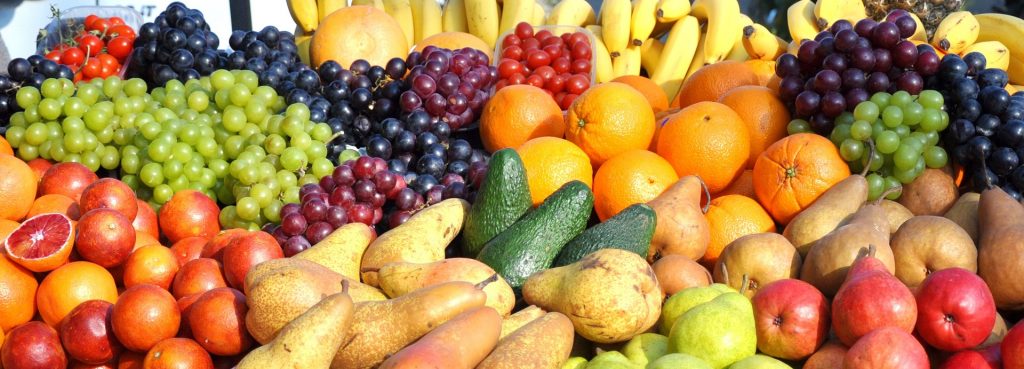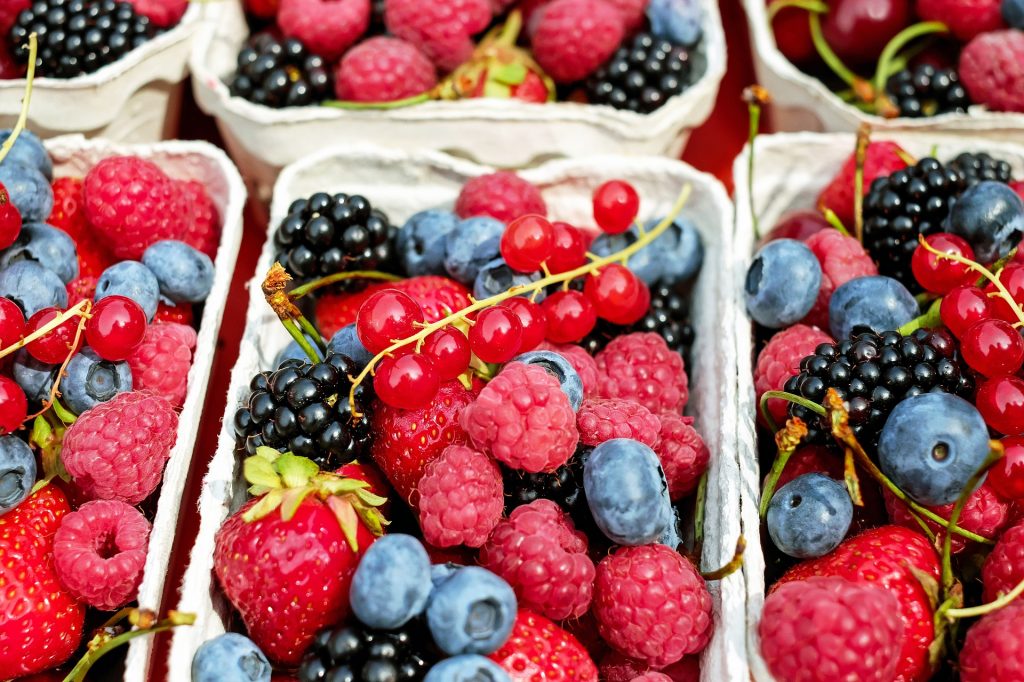Fruit is like nature’s healthy dessert! Conveniently, fruits also make up one of the five food groups and are considered an important building block of a healthy diet. Not only are they delicious and beautiful, but they also provide a variety of important nutrients, like vitamin C, potassium, and folate (folic acid).

When eaten regularly as part of a healthy diet, the nutrients in fruits can:
- Help heal cuts and wounds
- Keep teeth and gums healthy
- Maintain healthy blood pressure
- Contribute to the formation of red blood cells
More Health Benefits of Fruits
Most fruits are naturally low in calories, fat, and sodium, and high in fiber. The fiber in fruit provides a feeling of fullness and is also important for proper bowel function and helping reduce constipation. Eating fruits – which are lower in calories per cup compared to most other sweet, higher-calorie foods – can also help lower your total calorie intake and help maintain a healthy weight.
Diets rich in fruit have been linked to many desirable long-term health benefits, such as:
- Reduced risk of heart disease, type 2 diabetes, obesity, and certain forms of cancer
- Decreased risk of developing kidney stones
Antioxidants in Fruits
Many fruits are good sources of phytochemicals. One phytochemical many fruits contain is flavonoids that are thought to act as antioxidants and may protect against some cancers and heart disease. Carotenoids, which give cantaloupe and apricots their orange color, are promoted as anti-cancer agents. Pink grapefruit contains lycopene, which proponents claim is a powerful antioxidant.

From vitamins and minerals to fiber and antioxidants, fruits are a great source of nutrients vital to the health and maintenance of your body!
Enjoy Fruit Every Day
- Try satisfying your sweet tooth with naturally sweet and nutritious fruits instead of high-calorie desserts.
- Vary the fruits you eat to get a wide variety of nutrients and flavors, and try to buy in-season fruits for peak freshness and taste, whenever possible.
- To get the most dietary fiber, eat most of your fruit whole or in pieces, rather than as juice.
- Depending on your age, gender, activity level, 1½-2 cups of fruit are recommended daily.
Ways to Make Fruit Quick and Easy to Eat
- Place a bowl of fresh, whole fruit in a convenient location as a visual cue for on-the-go snacking.
- Prepare and keep cut fruit in the refrigerator so it is quick and easy to eat anytime you are craving something sweet and cold.
- Make a large bowl of fruit salad and package in single-serving, air-tight containers in the refrigerator. Enjoy with breakfast, as a mid-morning snack, or pack and enjoy at lunchtime. Store in the refrigerator for up to 3-5 days.
- Keep dried, frozen, and canned (in water or 100% juice) fruits on hand.
- Explore new ways to enjoy fruits for dessert. Try grilling seasonal fruits when you have the grill fired up, or filling the house with the delicious aroma of a baked or microwaved fruit dessert when it is cold out.
Eating fruit should never have to be a chore. Explore a variety of fruits year-round and be on the lookout for new ways to prepare and enjoy them!
Learn more about the fruit group on the USDA’s ChooseMyPlate.gov website: http://www.choosemyplate.gov/food-groups/fruits.html
Did You Know?
Fresh, dried, frozen, and canned fruits as well as 100% juice all count toward your daily servings of fruit.
For the best nutritional value, keep the following in mind when shopping for fruit:
- Drink 100% fruit juices for the highest nutritional value and no added sugars.
- Choose fresh fruit instead of juice for the highest amount of fiber.
- When eating canned fruit, select fruits canned in 100% juice or water to avoid added sugars.


